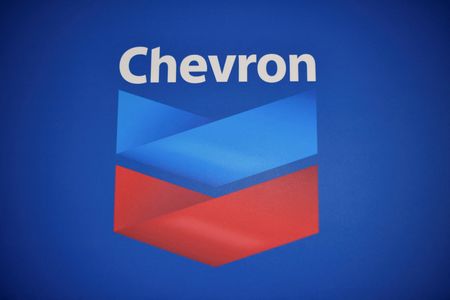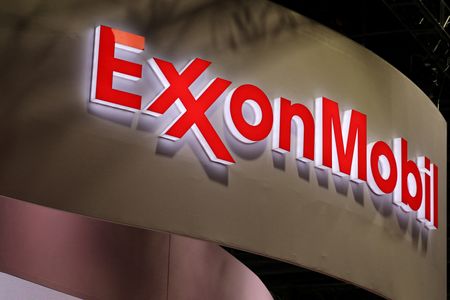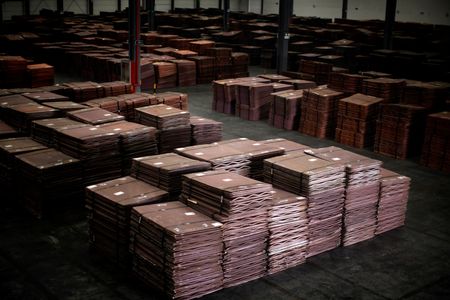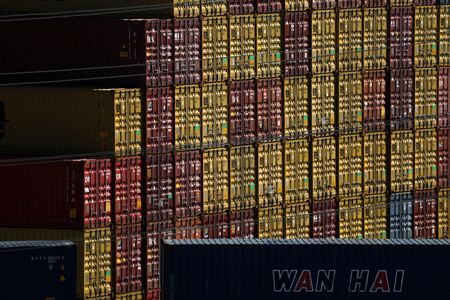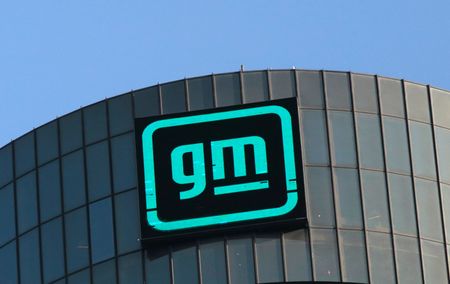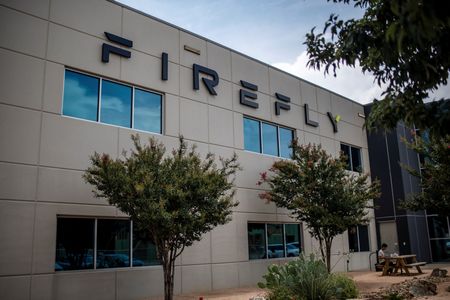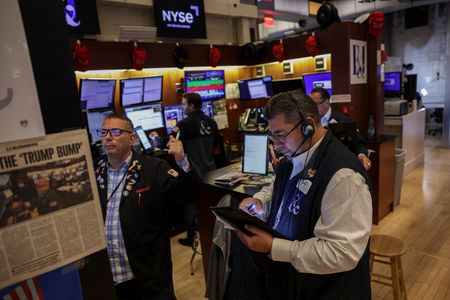By Arathy Somasekhar
HOUSTON (Reuters) -The start-up of an offshore well caused zinc contamination in Mars crude, Chevron said on Friday, leading to the tightening crude oil supply in the key Gulf Coast refining hub and the government releasing barrels from its emergency stockpile.
Inventories of crude oil along the U.S. Gulf Coast had fallen to their lowest seasonally in seven years at the end of last week, thanks to recent wildfires in Canada that cut supplies and cancellations of licenses that allowed for U.S.
import of Venezuelan crude.
The U.S. Department of Energy on Friday said it would provide up to 1 million barrels of crude oil from the Strategic Petroleum Reserve to Exxon Mobil’s Baton Rouge refinery in Louisiana, citing an offshore supply disruption.
Exxon told its trading counterparts that it will not buy the Mars crude oil grade until the zinc contamination issue is fixed, Reuters reported on Thursday.
The oil major requested the barrels from the SPR after the zinc contamination was identifiecrud in Mars crude, two sources familiar with the matter said.
Mars, a medium sour crude produced off the coast of Louisiana, is preferred by refineries along the Gulf Coast because of its properties and proximity.
Refiners are typically configured to run certain grades of oil for ideal yields of different types of fuels. Switching to other crude grades can be operationally challenging and limit production, shrinking margins.
The exchange of oil was authorized to help maintain stable regional supply of transportation fuels across Louisiana and the broader Gulf Coast, the DOE said, adding that the exchange will not impact or delay the department’s ongoing efforts to refill the reserve.
Exxon will resupply the crude, along with additional barrels to the SPR, the department added. Exxon declined to provide additional details.
Zinc does not typically occur naturally in crude oil and industry sources said they worried that running crude with zinc could cause damage to refining units and to catalysts used in processing oil.
TIGHT SUPPLY, STRONG DEMAND
The Mars crude stream is a mix of oil from various platforms off the Gulf Coast.
About 575,000 barrels per day of oil move on the Mars system to the coast, according to research firm Energy Aspects.
Prices for Mars traded on Friday at a 15-cent a barrel premium to U.S. crude at the Cushing, Oklahoma, hub.
It had eased to as little as a 10-cent discount earlier in the week, compared with a $1 premium at the end of June.
Chevron said it was working to resolve issues and it does not expect an impact to current production guidance.
Supplies of medium and heavy crude oil along the U.S. Gulf have tightened in recent months as Washington in late May terminated a group of licenses that had authorized partners of oil company PDVSA to take Venezuelan crude bound for U.S.
and European refineries.
Declining oil production in Mexico has also reduced exports to the U.S., while the recent wildfires in Canada also cut supplies that are usually imported. The opening of the expanded Trans Mountain pipeline last year has also redirected some Canadian oil flows to China and the U.S.
West Coast, rather than the U.S. Gulf Coast.
Meanwhile, demand for refined products, including gasoline and distillates, rose to 20.9 million bpd last week, the highest seasonally in five years thanks to strong driving demand.
(Reporting by Arathy Somasekhar in Houston, Bhargav Acharya and Susan Heavey; Editing by Marguerita Choy)

